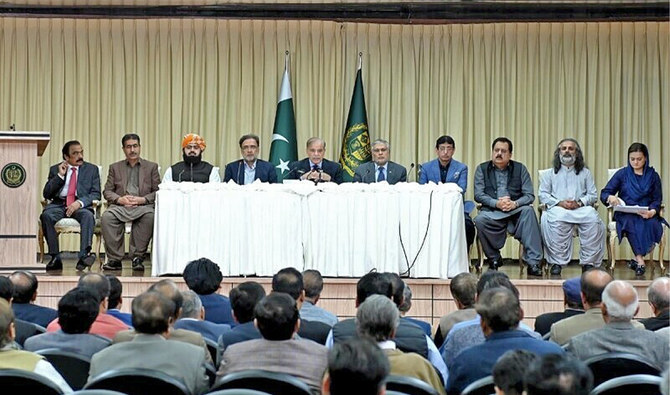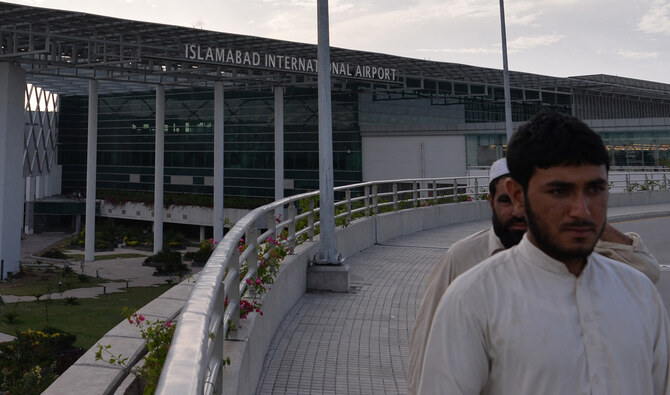ISLAMABAD: In a move that has further deepened the rift between the government and judiciary, Pakistan’s coalition administration on Thursday rejected a larger bench constituted by the apex court to hear petitions against a proposed law seeking to curtail the powers of the chief justice.
The proposed legislation aims to deprive the office of the chief justice the power to solely initiate suo motu hearings related to issues of public interest and unilaterally assign cases to different benches for hearing.
As per the bill, a three-member committee headed by the chief justice would decide to take suo motu notices and constitute the Supreme Court benches.
The legislation was initially passed by both houses of parliament last month and sent to the president for his assent. However, the president sent it back for review, saying that the proposed law traveled “beyond the competence of parliament.”
“The whole situation is alarming since a selective bench is hearing petitions against a proposed bill,” Pakistan’s law minister Azam Nazeer Tarar said while addressing a news conference with other leaders of the ruling coalition.
They all unanimously rejected the Supreme Court larger bench hearing the case and urged the chief justice to constitute a full court to discuss important issues, including the proposed legislation.
“Parliament has the right as per the law and constitution to legislate for the interest of people and make [state] institutions strong,” the law minister said, hoping the bench would be dissolved after the government’s objections.
He said that all coalition partners agreed that it was “not the right time to take up the pleas against the bill which is yet to become a law.”
“All institutions should remain within their constitutional limits to avoid confrontation,” Tarar said.
Earlier in a joint statement issued on Thursday, the coalition government “rejected the constitution of the controversial bench” by the chief justice even before the completion of the legislative process.
“Such act has never been seen before in Pakistan and its judiciary’s history,” it said.
The statement was issued right ahead of the eight-member bench hearing of petitions filed against the proposed legislations. The larger bench was constituted by Chief Justice Umar Ata Bandial on Wednesday who will decided to head it.
“This is tantamount to abolishing the integrity of the country’s top court and rendering the constitutional process of justice useless,” the statement said, adding that the bench was a manifestation of a division within the Supreme Court and was a testament to the coalition government’s stance related to the top court.
The statement also lamented lack of inclusion of judges in the eight-member bench from smaller provinces like Balochistan and Khyber Pakhtunkhwa provinces.
“The coalition parties consider it as an attack on parliament and its authority,” it added while vowing to resist against the new development. The statement further maintained the composition of the bench itself hinted at the possible outcome of the proceedings.
It added that any attempt to take away the authority of parliament and interfere with its constitutional scope would be strongly resisted.
“There will be no compromise on the authority of Parliament in light of the Constitution of Pakistan,” it added.
















